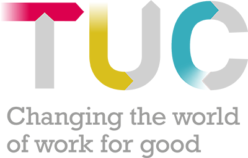This weekend, Business Secretary Kwasi Kwarteng signalled in the Telegraph that the government would finally rule out allowing unions to use online voting in strike ballots.
This is annoying to see in print, but to be honest we hadn’t exactly been holding our breath. The government sponsored review of online balloting recommended trials for it way back in 2017. Successive Business Secretaries have taken turns since then to punt the idea further back into the long grass.
We know online balloting works and we know it’s safe. Unions have been running non-statutory ballots online without issue for 20 years this year. But this was never about making strike ballots more accountable, as the Trade Union Act had billed it, merely a cynical way to put more hurdles in the way of working people wanting to exercise their rights.
So with this route closed off – at least until we get a change of government – unions are stuck with postal-only balloting; slow, expensive and liable to be overlooked, all depressing the turnout and making it harder to hit the government’s unfair thresholds.
But that doesn’t mean we don’t need a greater focus on digital in order to complete ballots. Digital is very much part of the solution.
At the TUC, we’ve been working with affiliates to find digitally supported ways to engage better with members, and get over the government’s hurdles to run successful ballots.
In this, we’ve been focussing on our biggest strength as a movement – our activists, and the personal relationships they build up with members in their branches. A new generation of peer-to-peer tools is changing the game on engagement, bringing scale, speed and efficiency to genuine personal conversations within the union community.
Contact like this is so much more effective in a balloting campaign than centrally directed messaging. Personal contact from a rep is way more likely to motivate people to get through the considerable faff that the Tories are putting in our members’ way.
Plus it’s much more flexible to solve the variety of questions that could crop up – from lost papers to questions about the campaign or process. And as organisers know, every personal conversation held strengthens the union.
From initial pilot work with UCU in 2019, we’ve worked on scaling this idea to national ballots, and have more recently also supported RMT and CWU in national ballot campaigns. Reps everywhere have really taken to it. Working with RMT, a group of 40 reps that we helped train, were able to hold 40,000 conversations in less than a week.
If your union is considering balloting over this summer and you’d like to talk to us about how you could use peer-to-peer engagement to drive turnout, get in touch. We can talk more about our case studies, or give you pointers on how to get the tools working for you.

